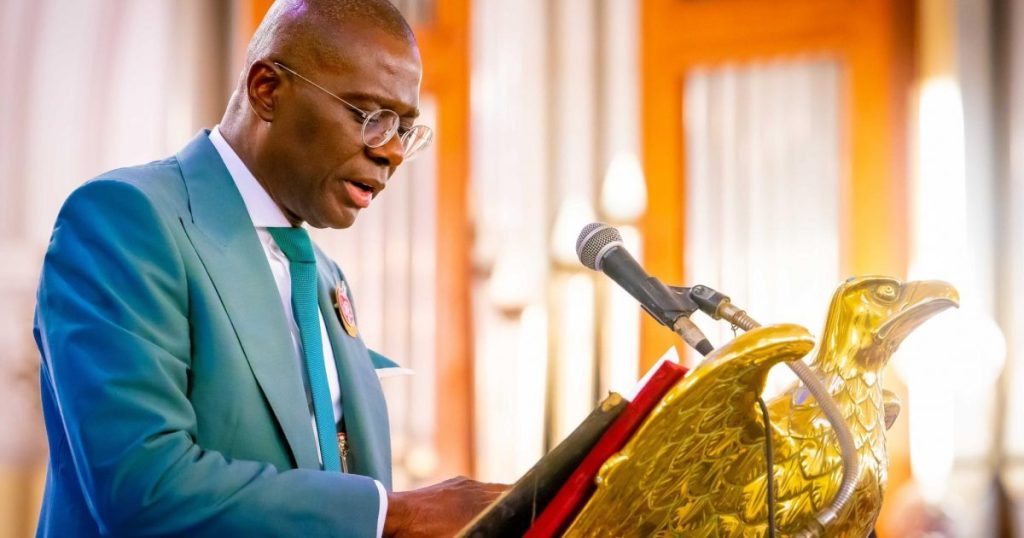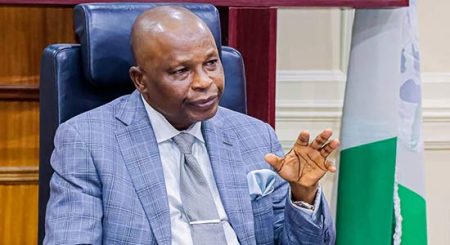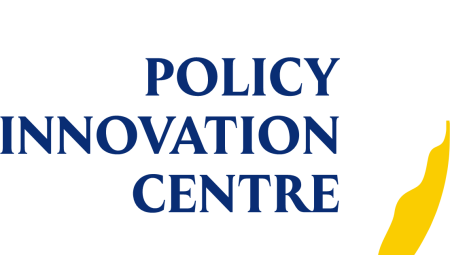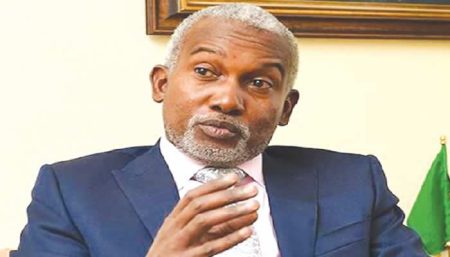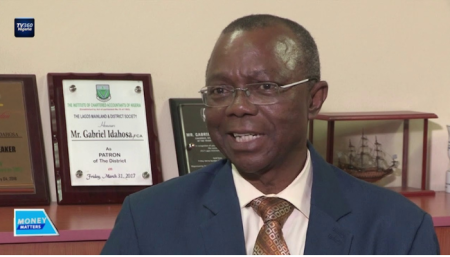Oba Abdulwasiu Lawal, the Oniru of Iru Land, launched his book, “From City to Megacity: A Memoir of Lagos Urbanisation (1999 – 2023),” to widespread acclaim. The launch event, held at the Oriental Hotel in Victoria Island, Lagos, drew a distinguished gathering of government officials, dignitaries, family, and friends. The book chronicles the dramatic transformation of Lagos over a 24-year period, drawing on the monarch’s firsthand experience as a public servant, policy implementer, and traditional ruler. It blends historical analysis, policy reflection, and personal anecdotes to offer a comprehensive view of the city’s evolution into a megacity. The book aims to spark dialogue and inspire further action towards a sustainable urban future for Lagos.
Lagos State Governor, Babajide Sanwo-Olu, represented by his deputy, Dr. Obafemi Hamzat, lauded the monarch’s initiative as a significant contribution to understanding Lagos’s urban development journey. He praised the book as a challenge to all stakeholders to safeguard the progress made, uphold shared values, and continue projecting Lagos as a model for Africa and the world. Hamzat emphasized the importance of understanding the critical issues confronting a rapidly growing megacity like Lagos. He highlighted the three major threats to the city’s future: excessive rainfall, rising sea levels, and extreme heat, stressing the need for the government to prioritize addressing these challenges. He commended the monarch for providing valuable insights into these issues, which he believed would inform government policy and action.
Former Lagos State Governor and Minister of Works, Babatunde Fashola, also praised the monarch’s effort to document his experiences and offer insights into Lagos’s development. Fashola underscored the importance of firsthand accounts in understanding the complexities of urban transformation. He noted the book’s focus on the period between 1999 and 2023, coinciding with significant investments in the agricultural sector by successive Lagos State governments. He drew a connection between the book’s launch and the recent announcement of a N500 billion fund for food production by the Lagos State government, emphasizing the continuous nature of development work.
Professor Taibat Lawanson, a professor of Planning and Heritage at the University of Liverpool, reviewed the book, describing it as a valuable resource on public service, urban governance, and sustainable development. She highlighted the unique perspective offered by the monarch, drawing on his experience in various roles. She also emphasized the book’s focus on fundamental human needs – food, shelter, and clothing – and the monarch’s involvement in addressing these needs in Lagos. Lawanson noted the book’s exploration of five key areas crucial to any governance system: housing, security, agriculture, transportation, and the environment.
Oba Lawal described his book as both a celebration of Lagos’s evolution and a call for thoughtful, future-oriented urban governance. He explained that the book stemmed from a question raised during a conference – “Is Lagos truly ready for the urban future?” – which prompted him to reflect, document facts, and engage in a conversation about the city’s urban development journey. He intended the book to be a resource for everyone invested in Lagos, including development partners, future leaders, civil servants, and community members.
The monarch structured the book both temporally and thematically. It begins by depicting the state of Lagos before 1999, characterized by chaotic urban development, inadequate infrastructure, poor waste management, and a failing public transport system. It then traces the progress made by successive administrations, highlighting initiatives like the introduction of LAMATA and the BRT system, LagosHoms housing schemes, improved waste management through LAWMA and PSP operators, and strengthened security networks. Finally, the book offers a vision for the next decade of urban development in Lagos, focusing on key issues affecting the daily lives of Lagosians, such as transportation, waste management, housing, security, agriculture, and public opinion. The book serves as a call to action, urging readers to engage in shaping the future of Lagos.





